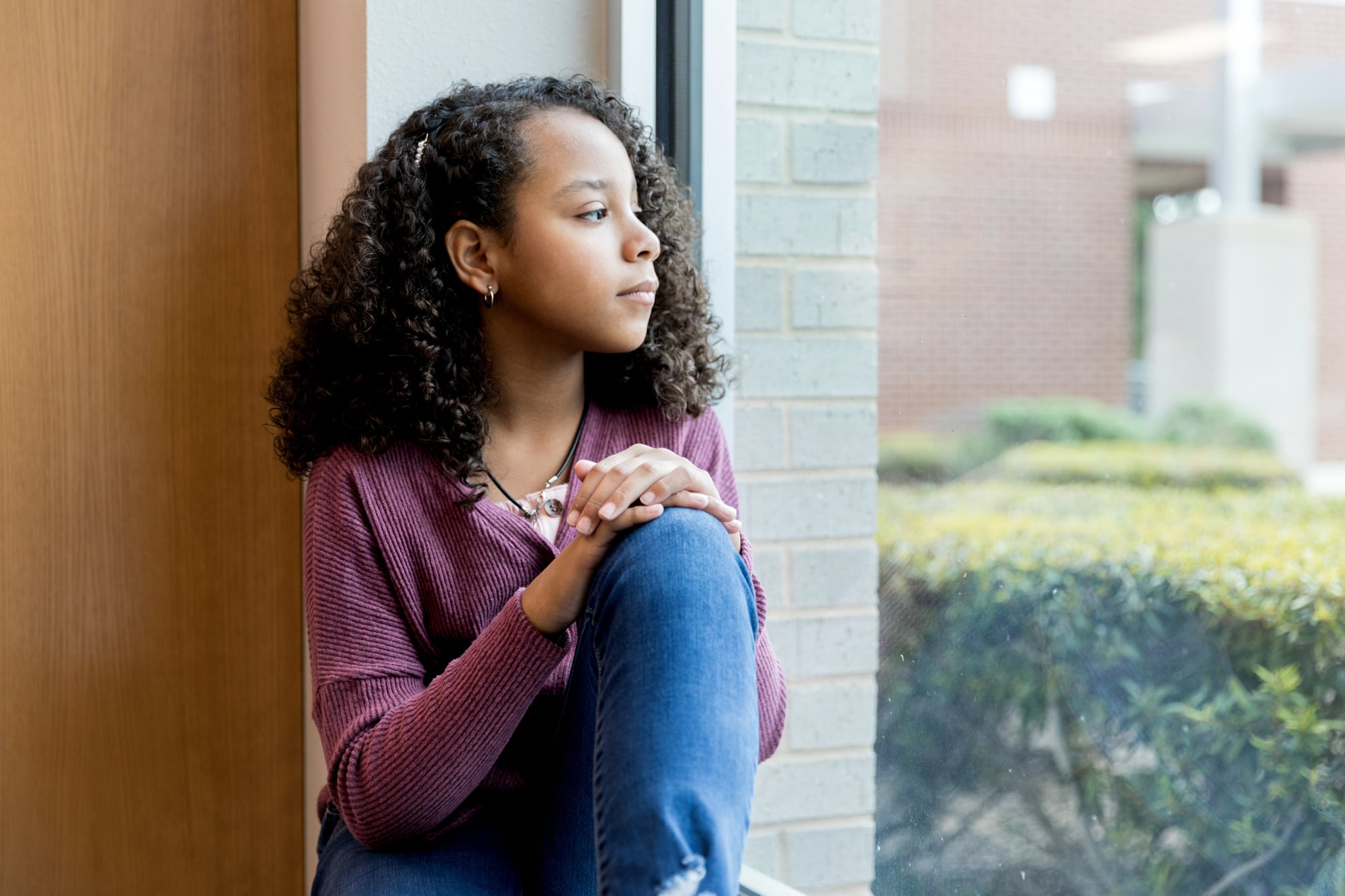
Studies have confirmed that children have a low risk of developing serious medical complications from COVID-19, but what scientific findings have a more difficult time tracking is how the pandemic continues to harmfully affect kids, regardless of transmission of the disease itself.
In an interview with U.S. Surgeon General Vivek Murthy, he told POPSUGAR that the mental health crisis facing today's youth [1] is not just an unfortunate side effect of the coronavirus, but it is an invisible illness all its own that can't continue to go untreated.
"This is the unseen toll of COVID-19 — the impact on our mental health and the mental health of our kids, in particular."
"This is the unseen toll of COVID-19 — the impact on our mental health and the mental health of our kids, in particular," Dr. Murthy said. "We've seen mental health worsen for many people during this pandemic. We've seen rates of anxiety and depression rise. They were already high for our kids before the pandemic began. And what we know about social isolation is that loneliness contributes to and increases your risk for anxiety and depression. And let's be honest: this has been a lonely experience for many of our kids."
In fact, prepandemic back in 2017, Dr. Murthy tackled what he called the "loneliness epidemic" and found that it had an adverse effect on physical health as well as mental health. It can cause a reduction in life span because it places those affected in an ongoing state of stress. In 2017, he shared his own experience as a "very shy" child [2] who had a hard time making friends and "felt lonely a lot."
Seeing all of those similar feelings play out for potentially millions of children this past year has prompted Murthy, a dad himself, to do some serious research into what can help families through these struggles.
"It turns out, the people in our lives who help us thrive actually reduce our risk of physical and mental illness by virtue of their social connection with us," he explained. "And that's why when I look at children, I think, what do we need to do to ensure that we strengthen the health and well-being of our kids in the future? Strengthening their social connection is one of the most important things we can do."
The quickest way to achieve that, he said, is in the form of a COVID-19 vaccine.
"The chance to get protected from COVID, the chance to get back to our lives, is an opportunity to get back to our social connections, and the vaccine is one clear pathway to doing that," he said. "If COVID-19 has taught us anything it's that we need each other to be well, to stay well — that we can't get through life's hardships solely on our own. And the chance to be together once again, to see each other, to embrace each other, to support one another, you can't put a price tag on that. That's why all of us are so eager to get people protected, to get them vaccinated, and ultimately get back to our lives."
Still, in response to the Pfizer vaccine now being open to 12- to 15-year-old adolescents [4], many parents wonder if the vaccine is truly essential for the youth population.
"If COVID-19 has taught us anything, it's that we need each other to be well, to stay well — that we can't get through life's hardships solely on our own. And the chance to be together once again . . . you can't put a price tag on that."
"What I say to those parents is, yes, actually, it is necessary," he told POPSUGAR. "Even though the risks to kids are lower from COVID, they're not zero. And we know that kids do get sick and a small portion of kids do end up in the hospital, and tragically, a very small number have actually passed away. We have a chance to reduce those risks even further, and I think we should do it."
He also echoed his sentiments about how children getting vaccinated will help them return to their normal lives again.
"For the past year, so many of our kids have had to give up the things that they love," he said. "They haven't been able to go to birthday parties with friends and be able to go to sleepovers and see movies in theaters. They haven't been able to see their grandparents or go on vacations with extended family. The vaccine is our chance to get back to all of those things that they love."
When asked about what guidance can be expected surrounding children in the coming months and in advance of a new school year this fall, such as if they will still need to be masked or socially distanced in the classroom or outdoors, he said it depends entirely on how many children get vaccinated.
"The good news is that as kids get vaccinated more, we'll be able to take further steps where we can relax these restrictions. That's the real joy and opportunity in getting vaccinated."
Further, he said that because children make up a sizable part of the U.S. population, their role in reaching herd immunity is paramount.
"It's not a switch that turns on and off in terms of we hit some critical level and all of a sudden there's no more virus. It's a gradual process and why even with 58 percent of adults in the country now vaccinated, we've already started to see a big drop in infections," he said. "That's extraordinary, and it's what we will see as we continue to get more members of society vaccinated. Kids are an important part of that."
